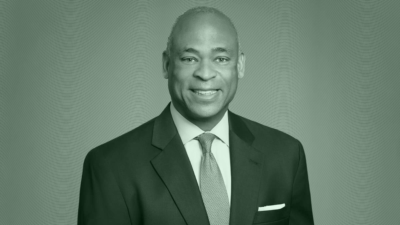AI Set to Play More of a Role in Investment Selection
Many advisors see AI as a big influencer in their jobs in the future, and one researcher expects the technology to be acting as a fiduciary in a few years.

Sign up for market insights, wealth management practice essentials and industry updates.
You can’t spell “advisor” without “A” and “I.” For that matter, you can’t spell “fiduciary” without them, either.
Today, that statement might seem preposterous. But recent surveys show that over half of advisors see generative artificial intelligence as having a place in investment decision-making, and many also expect their jobs to change because of it. A prominent economist who studies AI, MIT’s Andrew Lo, also told Bloomberg earlier this month that the technology will likely be capable of running money in a fiduciary capacity within five years. That, he told the publication, would be “agent AI where we have agents that are working on our behalf and making decisions on our behalf in an automated fashion.”
Generative Generation
Just under half (48%) of 113 advisors surveyed in April by Interactive Brokers agreed with the statement “generative AI will redefine the job of financial advisors within five years.” Another 25% were neutral, with 27% disagreeing, according to the report, which was published last month. More widely, advisors have been using AI for tasks like meeting notes, and 62% of those in the survey said that AI will make them more efficient (only 8% disagreed). And when it comes to advising clients, 51% said AI has a role (40% were neutral and 9% disagreed).
The CFP Board published an ethics guide on AI for advisors earlier this year, noting that advisors “must account for AI limitations and risks, including inaccuracies or ‘hallucinations.’” The technology has a lot of potential for investment-related research, such as aggregating information or pulling in data sources that an advisor wasn’t aware of, said Sara Cortes, assistant general counsel at the CFP Board. “The main consideration for advisors using it for investment research and selection specifically is to really understand what assumptions and estimates might be going into that AI and what the data set is, how the machine learns,” she said. “The thing they really need to keep in mind … is that they’re ultimately responsible for the investment selection in the client’s best interest.”
Most investors are leery of AI, but there are demographic differences, data published in July by FINRA show:
- Only 20% of investors said they would be interested in getting financial advice from AI, while 21% weren’t sure, and 59% would not want such advice.
- Men were more receptive to that than women (25% versus 14%), as were younger investors and non-white investors.
Trust the Smart Robots, but Verify. Just as there are risks associated with AI, there are risks with not using the technology and becoming aware of its benefits and limitations. “We want advisors to feel empowered to use this as a tool,” Cortes said. “The risks are relying a little too much on the AI and not listening to that voice inside your head saying ‘there’s something a little bit off about this,’ and trusting that.”











